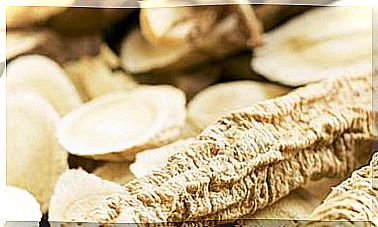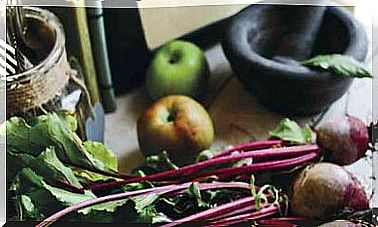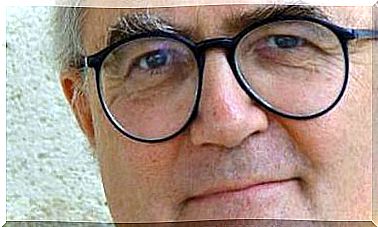Integrative Nutrition: 4 Steps To Eat Healthier (and Change Your Life)
Integrative nutrition takes into account the close relationship between diet, emotions and environment, and offers guidelines to introduce the necessary changes.

When you want to change something in life – whether it is food or other issues such as finding time for yourself, starting to play sports or even changing work or social issues – it seems that all the stars have to align so that one is able to take the step.
Changes are difficult and that is why we often wait for life to make it easy, and if not, we are able to endure a long time maintaining a conformist attitude. But sometimes, the need for change, conviction and commitment to what you want is strong enough to fight and achieve it.
This exhibition of strength is very beautiful, but it is not exactly easy …
81% of Spaniards fail to go on a diet, according to a survey conducted by the Spanish Society for the Study of Obesity (SEEDO). It also highlights that one of the main reasons why these people diet is to balance their emotional state ; exactly 78.8% of those surveyed.
Is it possible that the mood is related to the failure to change eating habits? What other factors influence?
Personal commitment and integrative nutrition
Changing the way you eat is not easy. The eating pattern that we follow is completely conditioned by the environment, family, relationships, culture, rhythm of life and something much more complex, the emotional balance of each one.
Going “on a diet” implies fighting against these conditioning factors, which is why it is common for it to be approached as a short-term change and without sufficient commitment to fully work on all these aspects.
The Integrative Nutrition seeks to find the ideal feeding pattern for each person taking into account all possible aspects: emotional, physical, psychological , lifestyle and environment. The margin of action is as wide as each one requires and it is the person involved who sets the times in the process.
One of the keys to avoid failure is that the person is clear that it is “a process”, a path with obstacles and difficulties that must be committed.
The 3 keys to a good diet
Integrative nutrition proposes an anti-inflammatory diet sustained in three pillars:
- Natural: free of additives and synthetic substances. The raw materials used in the food will be fresh and preferably organic.
- Regulatory: the food pattern must adapt to the biological rhythms of each one. Each hour of the day requires the intake of certain nutrients and organizing the diet in this way, taking into account the specific needs, favors an optimal state of health.
- Nutritious : due to the fact of not consuming fats or refined flours, you do not have a correct diet. You have to analyze what you are really eating to know if the nutrition is adequate.
The nutrition of the future
To understand the need for this new concept of nutritional approach, it is necessary to understand the context in which today’s society operates. Today it is really difficult to lead a balanced, intuitive and healing lifestyle if adequate personal work is not done, aimed at understanding and internalizing what we really need and how the environment affects us.
Today much more is known about nutrition than 50 years ago, it is a science that evolves rapidly and surprises us every day. Current studies come up with new conclusions that have nothing to do with what was recommended in the 90s.
On the other hand, globalization and the diversity of cultures that coexist in the same environment has made a range of food possibilities known much wider than ever. For this reason, you have to be better informed and oriented than just a few years ago.
On the other hand, society has also changed in many aspects that affect the way we eat.
The pace of life is frenetic, new technologies bombard with information every minute, the mentality of a working mother is pragmatic and has the need for quick and easy solutions, there is more pollution, supermarkets offer up to fifth generation food, and a long etcetera that I could list to describe how our world has changed.
Integrative nutrition guides the person in this new reality to be able to control their own diet in a world that makes it difficult. The work of self-knowledge and learning to eat are the bases to live with an integrative style.
Healthier alternatives
It is something known for a long time that the state of mind influences the way of eating. We have all experienced that knot in the stomach when we have been given bad news or that feeling of uncontrollable appetite when we have to face a stressful situation.
As a great comedian said: “Life is so bitter that it opens up the desire to eat every day.”
Finding new sources of pleasure serves to balance the mood and so that food is not the easiest way to obtain satisfaction.
Sweet is the flavor that best compensates for this “bitterness”, and it is no coincidence that precisely foods rich in sugar and refined flours raise levels of serotonin, the so-called hormone of well-being and pleasure.
Food produces satisfaction. It is eaten to compensate for unpleasant emotions because it is a quick, easy-to-obtain, and self-reliant stimulus. We don’t need anyone else to meet our need for positive reinforcement.
To get to control the emotional appetite, the first thing to do is look for other satisfactions. Depriving yourself of the chocolate and having no other alternative will not work: the brain will continue to ask for help to control the mood.
Tools such as meditation, sports or the search for new hobbies are essential to achieve a definitive change in the relationship you have with food.
In this new model of nutritional therapy, the coaching methodology (oriented to learning and self-knowledge to meet objectives with maximum performance) helps to achieve a change that lasts in life.
4 steps to achieve a definitive change
By making the act of eating more conscious, you can choose the foods that best suit your physiology and each moment you live.
The self-knowledge process that develops with integrative nutrition is structured in four fundamental phases.
1. Set goals
They are essential to find motivation and get down to work. Integrative nutrition seeks health and wellness goals because it is more motivating than aesthetics and has more weight on long-term decisions.
With concrete and tangible objectives, a proactive attitude is achieved and a future is envisioned. You always have to look for the “why” to make the changes and thus give them more meaning. The visualization exercises are very enlightening in this phase.
2. Know the current physical, mental and emotional moment
Food must not only adapt to physiology, but also to the moment we live.
Each person with their circumstances needs a certain type of diet and it is necessary to reflect on it: how am I eating? What are my schedules, my favorite foods, what routines do I follow? What makes me eat like this? How do they influence work, family, leisure, tastes …? How does what I eat affect me?
When these questions are answered, the act of eating becomes more conscious. A good exercise is to write down everything that is eaten for a week with times, places, companies and even the “why” we look for these ways of eating at all times.
3. Find alternatives
Once you are aware of what you have to change, you have to look for alternatives and tools that make the change productive. Withdrawing a food and not having a more suitable substitute is a mistake, to stop going to dinner for a hamburger with friends and not looking for the appropriate recreational alternative, is also wrong.
For this reason, integrative nutrition gives importance to emotional needs and the incorporation of new foods that enrich nutrition and expand the range of possibilities.
4. Commit to these changes
Commitment is easier when all of the above process has been done. I already know what hurts me, what I need to improve, the goal of each change and this has turned out to be positive for my health and well-being.
However, the commitment is your own and non-transferable, the salary depends on yourself and only a proactive attitude can lead us to success.
Health, the best goal
The current medical paradigm is based on disease and not on the maintenance of health. There is hardly a culture of prevention. The usual thing is to go on a diet for aesthetic reasons, not looking for the maintenance of health.
Good nutrition, stress control, physical activity and good sleep are fundamental prevention factors that must be taken care of. Taking care of this, the prevalence of chronic diseases would decrease considerably.
Integrative nutrition proposes a more natural, nutritious and regulatory diet that helps prevent and improve diseases. Each person is able to take control of their eating with more knowledge, tools and sufficient motivation.
This type of nutrition agrees with an anti-inflammatory diet, which does not cure diseases, but helps to improve symptoms and the collateral effects of treatments.
It also gives importance to the regulatory effect of diet on the intestinal microbiota, which is increasingly studied for its relationship with the immune system, one of the main bases of health.








